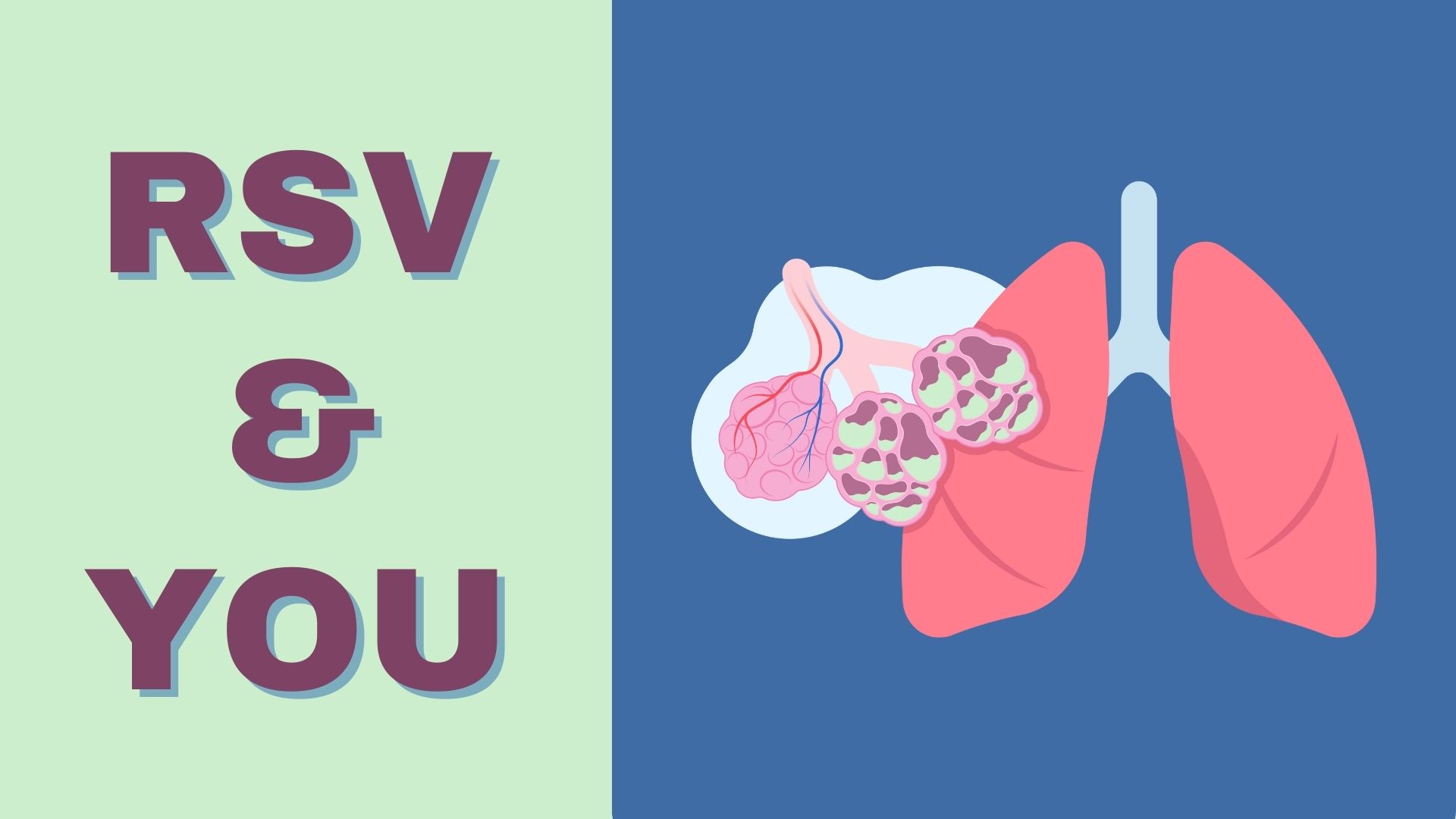It is Fall and that means it is vaccine time. In addition to your updated flu vaccine and the latest Covid subvariant EG.5 vaccine, medical professionals are recommending that adults 60 or older, those pregnant and babies should be protected against the respiratory virus, Respiratory Syncytial Virus (RSV). There is no maximum age for getting the RSV vaccination which is given as a single dose. Speak to your health care professional about which vaccines you should receive and the recommended scheduling.
The vaccine is especially advised if you have a weakened immune system from illness (e.g., leukemia or HIV infection) or from medications (e.g., treatment for cancer or organ transplant), if you have chronic medical conditions such as heart or lung disease, or if you live in a nursing home. If any of those apply to you, you might be at higher risk of severe RSV disease and an RSV vaccine could help prevent serious illness.
Even if you had RSV infection in the past, the vaccination can help prevent future respiratory disease from RSV. There is no specific length of time that you need to wait after having RSV infection before you can receive an RSV vaccine, but generally, if you have a moderate or severe illness, you should wait until you recover before receiving an RSV vaccine. If you have a minor illness, such as a cold, you can still get an RSV vaccine.
RSV is a highly contagious respiratory infection that can get deep into the lungs, resulting in lower respiratory tract disease that develops into pneumonia. RSV can go from cold-like symptoms to hospitalization in less than a week. According to the Centers for Disease Control and Prevention, 60,000 to 120,000 older adults are hospitalized in the United States with RSV each year, and 6,000 to 10,000 die.
After decades of failure, new insights into the shape of a key RSV protein allowed scientists to create successful vaccines for RSV. The new protein-based vaccines are similar to ones that are used against other diseases, including a hepatitis B vaccine, a shingles shot and an influenza vaccine. The protein in the vaccine is produced by cells in a laboratory.
There are two current vaccines for adults ages 60 years and older with healthy immune systems. One dose of the RSV vaccine Arexvy (GSK) was 83% effective in preventing lung infections (like pneumonia) due to RSV during the first RSV season after vaccination. During the second RSV season after vaccination, one dose of Arexvy was still 56% effective against lung infections.
The other vaccine, Abrysvo (Pfizer), was 89% effective in preventing lung infections (like pneumonia) due to RSV during the first RSV season after vaccination. Based on early results from the second RSV season, Abrysvo continued to provide protection, but the second season final results have not yet been released.
It is recommended that you get the latest flu vaccine before Halloween and the RSV vaccine ASAP. While there is some preliminary data to suggest that the RSV vaccines should be administered separately from other vaccines, the newest flu and Covid vaccines can be administered on the same visit.
Most private health insurance plans must cover certain vaccines without charging a copayment or coinsurance when provided by an in-network provider.
RSV cases are already rising in the Southeastern U.S. To stay healthy this season, follow these recommendations from the Cleveland Clinic:
Wash your hands. Use soap and water and wash your hands for at least 20 seconds. Hand sanitizer can also help protect you from germs. And do your best to keep your hands off your face.
Cover your mouth or wear a mask. When you feel the urge to cough or sneeze, either use a tissue or your upper shirt sleeve to cover your mouth and nose.
Practice social distancing. Maintain a safe distance — about 6 feet — when out in public areas.
Stay home if you feel sick. If you don’t feel good, make sure you avoid going in to work or school, or going out in public.
Get the vaccines that your doctor recommends.

